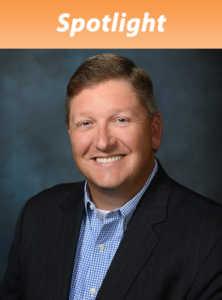
Communication Is Key To Consultant Pharmacist Effectiveness – by T.J. Griffin, RPh., Chief Pharmacy Officer
November 10, 2020Consultant pharmacists bring extraordinary – and well-established – value to long-term care communities. As external pressure rises to contain the costly rehospitalizations that adverse drug events cause, consultant pharmacists provide an even more vital resource. Yet consultant pharmacists are often underutilized. Optimizing the guidance of these specially-trained experts can have a dramatic impact on the safe, effective and appropriate use of medications – positively influencing a community’s care, quality measures and bottom line.
The Role of Consultant Pharmacist
Medication mismanagement is a leading cause of avoidable re-hospitalizations. Consultant pharmacists help solve that challenge by working in collaboration with prescribers and caregivers to optimize therapies and reduce errors. Trained in medication management for both routine and complex drug regimens, in addition to administering pharmacy services, a consultant pharmacist can assist in specific strategic initiatives on broader care issues as well. These include:
- Identification of medication-related problems and intervention
- Resident assessments and care planning
- Education of residents and providers
- Advanced services such as disease management protocols
A consultant pharmacist also monitors all pharmacy-related aspects of CMS and state regulations to keep communities in compliance and survey-ready.
Challenges and Opportunities
Communication is critical to optimize the benefits of a consultant pharmacist. Barriers that inhibit essential communication include:
- Staff turnover: High turnover prevalent in the industry today can make it challenging for consultant pharmacists to accomplish critical initiatives.
- Different priorities: Nursing staff and consultant pharmacists may not view the importance of activities equally.
- Unfamiliarity: In some centers, there are misperceptions about the role of a consultant pharmacist, with some staff viewing them as simply survey-specific.
- Lack of time: Busy nurses often cannot set aside time to discuss specific cases or disease states or, when they do, may get interrupted by family members or emergencies.
- Insufficient follow-through: Pharmacist recommendations for actions like dose changes are often not finalized, which can have dire consequences.
- No formal communications process established: The consultant pharmacist and nurses often fail to hold entrance and/or exit meetings.
- An EMR system that is not fully integrated: Without a fully integrated system, it can be difficult for a consultant pharmacist to locate information needed to perform medication regimen reviews.
While these factors can hinder communication, opportunities exist to improve the dialogue between skilled nursing community staff and consultant pharmacists to realize a number of crucial benefits.
Effective Communication for Improved Care
Communities can take several steps to improve communication between staff and consultant pharmacists:
- Fully integrate the EMR system and make it accessible remotely to the consultant pharmacist.
- Leverage technology to better transmit resident information at transitions of care.
- Set aside time to discuss specific disease states, polypharmacy and high-alert drugs.
- Hold multidisciplinary meetings that include a prescriber, nurse, CNA and consultant pharmacist on the use of antibiotics, antipsychotics and opioids, and proactively engage the pharmacist in medication reconciliation upon admission and at discharge.
- Ensure a functional IMRR process for reporting short stays and changes of conditions.
Implementing this step-by-step approach allows the consultant pharmacist to play an integral role in a multidisciplinary team effort to improve treatment outcomes and reduce rehospitalizations. The result: better quality measures, happier residents and engaged staff.
Medication management is one of the key challenges facing long-term care communities and can make or break a community’s perceived value. With more than 30 years pharmaceutical experience in the long-term setting, PharMerica pharmacists can be part of the solution. To learn about how PharMerica’s consultant pharmacists can enhance resident care, contact [email protected] or call 855-637-1755.


T.J. Griffin, RPh, is Chief Pharmacy Officer at PharMerica, where he oversees the operations of all 95 pharmacies as well as the clinical consulting pharmacy teams as well as the corporate inventory and logistics departments. He promotes a culture of care, commitment and collaboration to achieve best-in-class clinical outcomes for clients and residents. Prior to joining PharMerica in 2003, Mr. Griffin worked for Eckerd Drug Stores for 13 years in various management capacities in the state of Florida. He is a 1989 graduate of the University of Iowa with a Bachelor of Science degree in Pharmacy. He is the husband of a devoted Clemson Tiger, and father to a Kentucky Wildcat lacrosse player so Saturdays are never quiet!
T.J. Griffin, RPh
Vice President & Chief Pharmacy Officer, PharMerica
